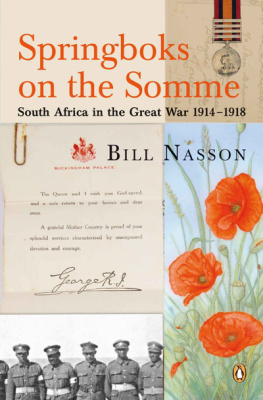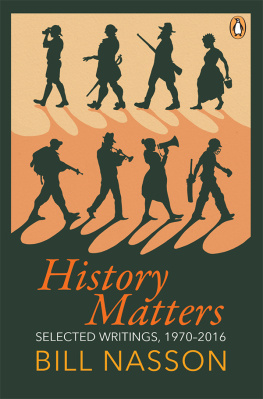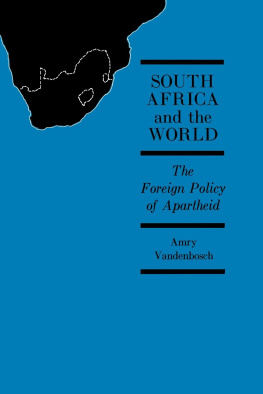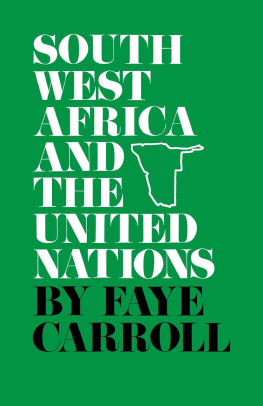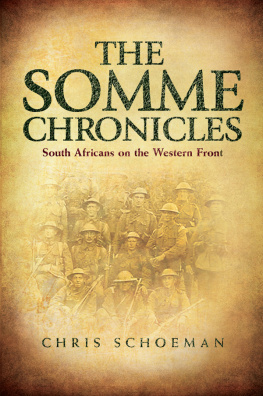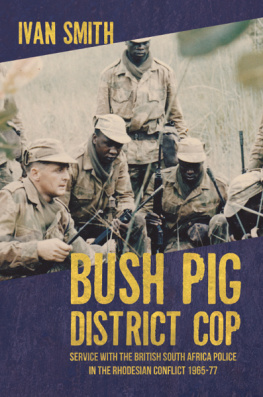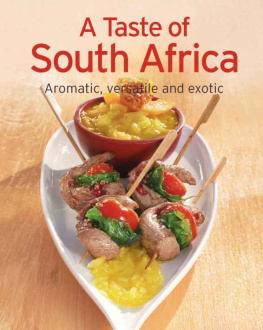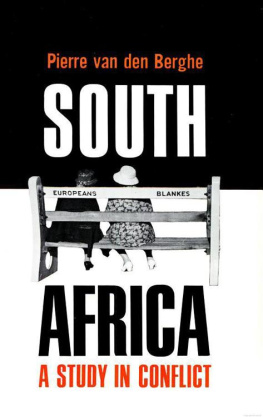SPRINGBOKS ON THE SOMME
South Africa in the Great War 1914 -1918
BillNasson

PENGUIN BOOKS
PENGUIN BOOKS
Published by the Penguin Group
Penguin Books (South Africa) (Pty) Ltd, 24 Sturdee Avenue, Rosebank, Johannesburg 2196, South Africa
Penguin Group (USA) Inc, 375 Hudson Street, New York, New York 10014, USA
Penguin Group (Canada), 90 Eglinton Avenue East, Suite 700, Toronto, Ontario, Canada M4P 2Y3 (a division of Pearson Penguin Canada Inc)
Penguin Books Ltd, 80 Strand, London WC2R 0RL, England
Penguin Ireland, 25 St Stephens Green, Dublin 2, Ireland (a division of Penguin Books Ltd)
Penguin Group (Australia), 250 Camberwell Road, Camberwell, Victoria 3124, Australia (a division of Pearson Australia Group Pty Ltd)
Penguin Books India Pvt Ltd, 11 Community Centre, Panchsheel Park, New Delhi 110 017, India
Penguin Group (NZ), 67 Apollo Drive, Mairangi Bay, Auckland 1310, New Zealand (a division of Pearson New Zealand Ltd)
Penguin Books (South Africa) (Pty) Ltd, Registered Offices: 24 Sturdee Avenue, Rosebank, Johannesburg 2196, South Africa
www.penguinbooks.co.za
First published by Penguin Books (South Africa) (Pty) Ltd 2007
Text copyright Bill Nasson 2007
Appendix drawings copyright Francesca Sara Stipinovich
All rights reserved
The moral right of the author has been asserted
Maps drawn by Anne Westoby
All photographs courtesy of the South African National Museum of Military History
Except in the United States of America, this book is sold subject to the condition that it shall not, by way of trade or otherwise, be lent, resold, hired out or otherwise circulated without the publishers prior consent in any form of binding other than that in which it is published and without a similar condition including this condition being imposed on the subsequent purchaser.
ISBN: 978-0-14-302716-4
In remembrance of Joe Samuels,
Springbok veteran of the Great War and
last South African survivor of the Battle of Delville Wood
None of the nations of the Empire will gird on the sword with greater alacrity, or with greater certainty of the righteousness of the cause, than the South African nation
Cape Times, 5 August 1914
Afrikaner blood should not be shed in a war which is not South Africas war, in what is an imperialistic war between Germany and Britain
DeZuid-Afrikaan, 15 September 1914
To Nationalists
Think of the German army,
Of the awful things they have done;
Of the torture of innocent children,
Which they laugh at and consider fun.
Think of those German murderers,
As they drop their bombs from on high;
Remember the Lusitania
Of the helpless womens cry.
Theyre weak, now up and defend them,
Show that Dutchman, courageous and free,
Think first of honour and freedom,
Understand the meaning of liberty.
Its hard to leave home and comfort,
To leave mother and lover, too;
But think of the nobles and princes
Of the men who are dying for you.
You know that England is calling
For men to defend the right,
You know that lads are dying
To break the German might.
St Cyprians Magazine, 70 (1918)
CONTENTS
List of maps
Acknowledgements
During his time at Penguin, Jeremy Boraine started the ball rolling by trying to persuade me to write a different book on another topic. My thanks to everyone there for encouragement, patience, and professionalism, especially Claire Heckrath, and my editor Pam Thornley.
Earlier versions of some of the material in this volume originally appeared in several more specialised academic organs. Acknowledgement is due to Peter Liddle and Hugh Cecil of At the Eleventh Hour and Passchendaele in Perspective; the same goes for the editors of The Journal of Imperial and Commonwealth History, The English Historical Review, War and Society, Oral History, The International Journal of African Historical Studies, The John Buchan Journal, and Guerres Mondiales et Conflits Contemporain.
Once again, I should like to acknowledge the stimulus and encouragement of fellow companions in the History trench at the University of Cape Town, especially Vivian Bickford-Smith. Gratitude is due to Ann and Leah for the support of baffled interest and bemused tolerance. For daily distraction other thanks are due to Olive, Chlo and Lucy who are, strictly speaking, mammals, if not conversationalists. Thanks to Sara Stipinovich for enlivening this book with her illustrative talent. Acknowledgement is due to Anne Westoby who provided crisp maps. Over the years, I have incurred my own war debt to scholars far more knowledgeable and expert than I on 1914-18 and the South African past. They know very well who they are.
Finally, thanks to Gerda Viljoen of the South African National Museum of Military History for expert assistance in sourcing the photographs.
Prologue
Following the British victory over independent Boer republicanism in the devastating South African War of 1899-1902, South Africa underwent a phase of post-war reconstruction. This was in preparation for the unification of the British colonies of the Cape and Natal with the conquered Boer territories of the Transvaal and the Orange Free State. The creation of a stable, unitary South Africa had long been an objective of imperial policy. Londons main concern was to cleanse Afrikaners of a white separatist spirit and to reconcile them to a secure and comforting imperial connection.
There was mild clucking over the racially discriminatory terms of Union and the political exclusion of the black majority, but such grievances were shrugged off. What mattered was the creation of an inclusive white nationality with an electorate limited to the democracy of manhood. Like Australia, New Zealand and Canada, South Africa was to be a white dominion, governed by its own parliament with a governor general representing the rights of the British Crown. There, under a sun which would never set, the African springbok would not only lie down with the European lion; when called upon, its responsibility would be to spring to its defence.
In the view of its creators, an amalgamated state would serve Britains long-term economic, political and strategic needs by stimulating more rapid economic development and by nurturing Anglo-Afrikaner reconciliation and accommodation. Other advantages of a Union of South Africa within the British empire included a loyal country that could provide some pasture for emigration and promising postings for expatriates, continue to keep the Royal Navy and merchant shipping needs well watered at the Cape of Good Hope, and take military responsibility for the internal security and external land defences of a large and economically significant region that straddled the Indian and Atlantic Oceans.
Leadership of the Union which came in 1910 was dominated by Boers or Afrikaners who were reconciled to sharing a bed with the British in the pursuit of national progress. With almost as many English as Afrikaner South Africans running its ministries, the Afrikaner-led government of the new state was well briefed on providing an easy order for British mining, industrial, commercial and other local interests. Not for nothing was the deputy prime minister, General Jan Smuts, minister of mines and the interior as well as minister of defence. Anglo-South African partnership through the imperial tie looked assured, with Britain able to count on Union assistance in propping up its world power. South Africas first prime minister, General Louis Botha, was unequivocal on this at the 1911 Imperial Conference, at which there was discussion of the basis on which London could commit the dominions to participation in war.

